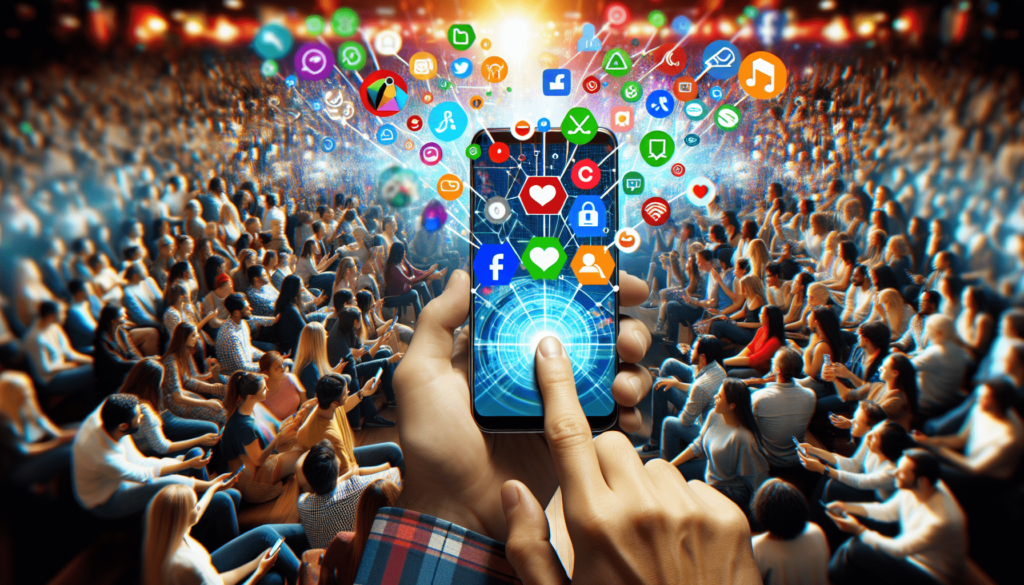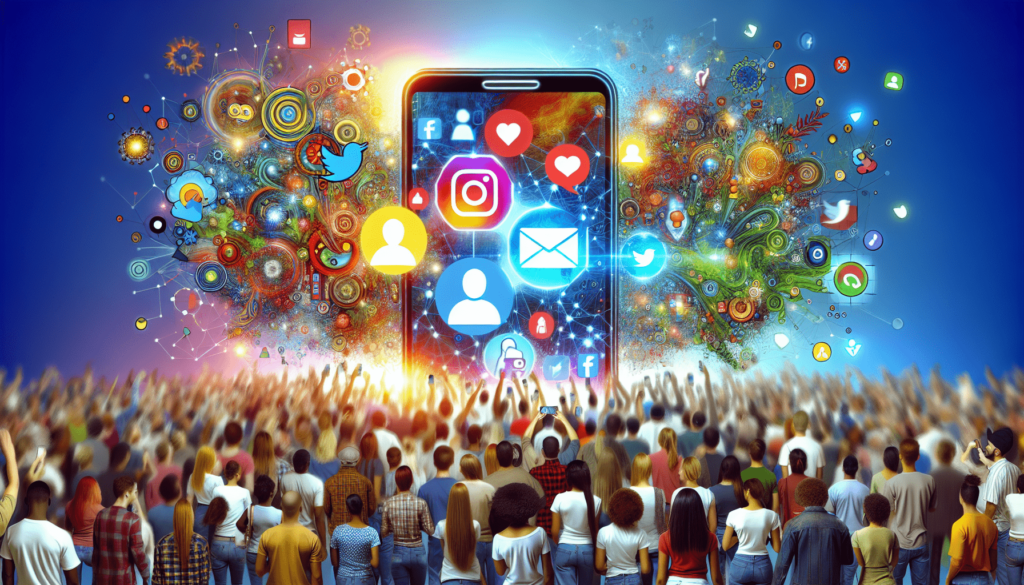In today’s digital age, your ability to harness the power of social media can significantly enhance attendance and engagement at your offline events. Through strategic posts, engaging content, and targeted advertisements, you can create a buzz that extends beyond the virtual world and translates into real-world excitement. By utilizing platforms like Facebook, Instagram, and Twitter, you can reach a wider audience and provide them with compelling reasons to attend. This article explores effective techniques and tips to leverage social media’s vast potential to drive traffic to your offline gatherings and ensure they are a resounding success.
How Can You Use Social Media To Drive Traffic To Offline Events?
Have you ever wondered how you can use social media to drive traffic to your offline events effectively? In today’s digital age, harnessing the power of social media can significantly boost your event’s attendance and overall success. But throwing together a few Facebook posts or tweets won’t cut it. A well-structured strategy can make all the difference.
The Power of Social Media in Event Promotion
First, let’s understand why social media is such a potent tool for event promotion. Social media platforms boast billions of active users, offering a massive audience at your fingertips. When used wisely, these platforms provide a cost-effective way to generate buzz, engage potential attendees, and increase event turnout.
Reach a Wider Audience
Social media platforms allow you to reach a diverse and extensive audience. Unlike traditional marketing channels, social media enables you to target specific demographics and geographies, ensuring your event information gets in front of the right people.
Engage with Your Audience
One of the most significant advantages of social media is the ability to interact with your audience directly. You can answer questions, provide updates, and foster a community around your event. This engagement builds excitement and encourages more people to attend.
Cost-Effective Promotion
Compared to traditional advertising methods, social media marketing is generally more affordable. You can leverage both organic and paid tactics to maximize your event’s visibility without breaking the bank.
Planning Your Social Media Strategy
To drive traffic to your offline events using social media, you need a strategic approach. Here’s how you can get started:
Identify Your Goals
Start by identifying what you want to achieve with your social media efforts. Are you looking to increase ticket sales, raise awareness, or both? Clear goals will guide your strategy and help you measure success.
Know Your Audience
Understanding your target audience is crucial for crafting messages that resonate. Consider factors such as age, interests, location, and online behavior. Tools like Facebook Insights can provide valuable data about your audience.
Choose the Right Platforms
Not all social media platforms will be effective for your event promotion. Select the platforms where your target audience is most active. Here’s a quick guide to popular platforms:
| Platform | Best For |
|---|---|
| Community building, event pages, targeted ads | |
| Visual content, stories, influencer partnerships | |
| Real-time updates, engagement with attendees | |
| Professional events, B2B marketing | |
| TikTok | Engaging, short video content for younger audience |
Create a Content Calendar
A content calendar helps you plan and schedule your posts in advance, ensuring consistent communication. Include a mix of promotional content, behind-the-scenes peeks, and engagement posts to keep your audience interested.

Crafting Compelling Content
Content is king in the world of social media. To attract attendees to your offline event, your content needs to be engaging, informative, and shareable.
Tell a Story
Stories are compelling and memorable. Share the story behind your event, why it’s happening, and what attendees can expect. Emotional storytelling can create a deeper connection with your audience.
Use Eye-Catching Visuals
Posts with high-quality images or videos tend to perform better. Use visuals that capture the essence of your event. Consider creating a promotional video or a series of graphics highlighting different aspects of the event.
Encourage User-Generated Content
Encourage your audience to create and share their own content related to your event. This not only increases engagement but also serves as authentic promotion for your event. Consider running a contest or using a specific hashtag to collect user-generated content.
Leverage Influencers and Partnerships
Collaborate with influencers or local businesses that align with your event’s theme. Influencers can help you reach a broader audience and add credibility to your promotion efforts.
Create Event-Specific Hashtags
Creating a unique hashtag for your event can help consolidate content and make it easier for people to follow updates. Encourage attendees to use the hashtag in their own posts.
Engaging Your Audience
Once you’ve got your content sorted, the next step is to engage your audience effectively.
Run Contests and Giveaways
People love the chance to win something, especially if it’s a ticket to your event or exclusive event merchandise. Contests and giveaways can significantly boost engagement and excitement around your event.
Host Live Sessions
Live sessions are an excellent way to interact with your audience in real-time. Host Q&A sessions, behind-the-scenes tours, or interviews with keynote speakers to generate buzz and answer any questions potential attendees might have.
Provide Sneak Peeks
Build anticipation by sharing sneak peeks of what’s to come. Whether it’s a glimpse of the venue, a teaser of a performance, or an introduction to a special guest, these sneak peeks can excite your audience.
Engage in Conversations
Don’t just post and disappear. Engage with your audience by replying to comments, answering questions, and joining in on relevant conversations. Show your audience that you’re actively listening and eager to interact.

Utilizing Paid Advertising
While organic posts are important, paid social media advertising can amplify your reach and ensure your event gets the visibility it deserves.
Facebook and Instagram Ads
Both Facebook and Instagram offer robust advertising platforms with detailed targeting options. You can create ads tailored to different audience segments based on demographics, interests, and behaviors.
Twitter Ads
Twitter ads are effective for promoting events in real-time. Use Twitter’s promoted tweets or accounts to encourage sign-ups and build excitement.
LinkedIn Ads
For professional events, LinkedIn ads can be highly effective. Target industry professionals with sponsored content or InMail ads to promote your event.
TikTok Ads
If your event targets a younger audience, TikTok ads can help you reach this demographic effectively. Create engaging short videos to capture attention and drive registrations.
Collaborating with Influencers
Influencers can be a powerful ally in driving traffic to your offline events. Their endorsement can add credibility and increase your event’s reach.
Identify the Right Influencers
Look for influencers who align with your event’s theme and values. They should have a significant following within your target audience.
Build Genuine Relationships
Approach influencers with a genuine interest in collaboration. Offer them something valuable in return, such as free tickets or exclusive access to your event.
Create Authentic Content
Allow influencers the creative freedom to promote your event in their authentic voice. Authentic content resonates better with their audience and builds trust.
Measuring Success
To understand the effectiveness of your social media efforts, you need to measure key metrics regularly.
Track Engagement
Monitor likes, shares, comments, and mentions to gauge how well your content is resonating with your audience.
Analyze Traffic
Use tracking tools like Google Analytics to see how much traffic is being driven to your event website from social media. Look at the number of clicks on your event link and the conversion rate.
Monitor Hashtag Performance
Track the usage of your event-specific hashtag to see how many people are talking about your event and the reach of these discussions.
Assess Ad Performance
Review metrics from your paid advertising campaigns to understand which ads are performing best and why. Adjust your strategy accordingly.
Collect Feedback
After the event, collect feedback from attendees to learn what worked and what didn’t. This information will be invaluable for planning future events.
Post-Event Engagement
Your social media efforts shouldn’t end when the event does. Post-event engagement helps maintain the relationship with your audience and encourages them to attend future events.
Share Highlights
Post photos, videos, and highlights from the event. This not only gives attendees something to reminisce about but also showcases the event’s success to those who couldn’t attend.
Thank Your Attendees
Show appreciation to those who attended by posting thank-you messages. This simple gesture can help build loyalty and encourage future attendance.
Gather Testimonials
Collect and share testimonials from attendees. Positive reviews can boost your event’s credibility and attract more attendees next time.
Keep the Conversation Going
Continue to engage with your audience even after the event. Share related content, ask for feedback, and tease upcoming events.
Conclusion
Using social media to drive traffic to your offline events is a multifaceted process. It requires strategic planning, engaging content, targeted advertising, and ongoing engagement. By understanding your audience, leveraging the right platforms, and actively interacting with your followers, you can boost your event’s visibility and attendance significantly. Remember, the key is to stay authentic, provide value, and keep the conversation going even after the event wraps up. Happy promoting!

